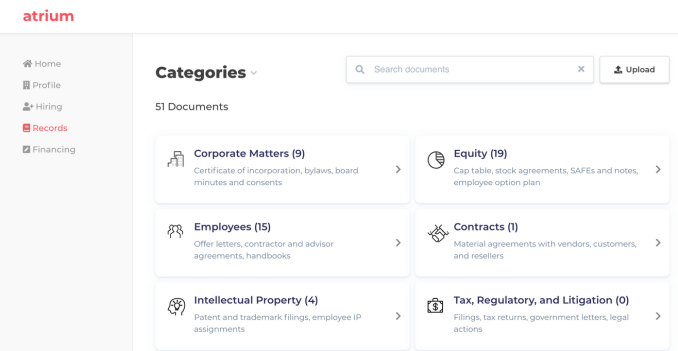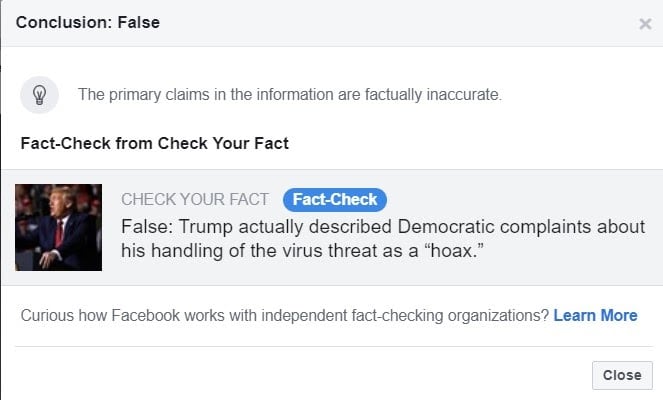Music
Trailers
DailyVideos
India
Pakistan
Afghanistan
Bangladesh
Srilanka
Nepal
Thailand
Iraq
Iran
Russia
Brazil
StockMarket
Business
CryptoCurrency
Technology
Startup
Trending Videos
Coupons
Football
Search
Download App in Playstore
Download App
Best Collections
Technology
Justin Kan hybrid legal software and law firm startup Atrium is shutting down today after failing to figure out how to deliver better efficiency than a traditional law firm, the CEO tells TechCrunch exclusively. The startup has now laid off all its employees, which totaled just over 100. It will return some of its $75.5 million in funding to investors, including Series B lead Andreessen Horowitz. The separate Atrium law firm will continue to operate.
&I&m really grateful to the customers and the team members who came along with me and our investors. Itunfortunate that this wasn&t the outcome that we wanted but we&re thankful to everyone that came with us on the journey,& said Kan. He&d previously founded Justin.tv, which pivoted to become Twitch and later sold to Amazon for $970 million. &We decided to call it and wind down the startup operations. There will be some capital returned to investors post wind-down,& Kan told me.

Atrium had attempted a pivot back in January, laying off its in-house lawyers to become a more pure software startup with better margins. Some of its lawyers formed a separate standalone legal firm and took on former Atrium clients. But Kan tells me that it was tough to regain momentum coming out of that change, which some Atrium customers tell me felt chaotic and left them unsure of their legal representation.
More layoffs quietly ensued as divisions connected to those lawyers were eliminated. But trying to build software for third-party lawyers, many of whom have entrenched processes and older leadership, proved difficult. The streamlined workflows may not have seemed worth the thrash of adopting new technology.
&If you look at our original business model with the verticalized law firm, a lot of these companies that have this kind of full stack model are not going to survive,& Kan explained. &A lot of these companies, Atrium included, did not figure out how to make a dent in operational efficiency.&
Disrupting law firms proves difficult
Founded in 2017, Atrium built software for startups to navigate fundraising, hiring, acquisition deals and collaboration with their legal team. Atrium also offered in-house lawyers that could provide counsel and best practices in these matters. The idea was that the collaboration software would make its lawyers more efficient than a traditional law firm so they could get work done faster, translating to savings for clients and Atrium.

Atriumsoftware included Records, a Dropbox-esque system for keeping track of legal documents, and Hiring, which instantly generated employment offer letters based on details punched into a form while keeping track of signatures. The startup hoped it could prevent clients and lawyers from wasting time digging through email chains or missing a sign-off that could put them in legal jeopardy.
The company tried to generate client leads by hosting fundraising workshops for startups, starring Kan and his stories from growing Twitch. A charismatic leader with a near-billion-dollar exit under his belt, investors and founders alike were quick to buy into Kanvision and advice. Startups saw Atrium as an ally with industry expertise that could help them avoid dirty term sheets or botched hires.

But keeping a large squad of lawyers on staff proved costly. Atrium priced packages of its software and legal assistance under subscriptions, with momentous deals like acquisitions incurring add-on fees. The model relied less on milking clients with steep hourly rates measured down to six-minute increments like most law firms.
Yet eliminating the busywork for lawyers through its software didn&t materialize into bountiful profits. The pivot sought to create a professional services network where Atrium could route clients to attorneys. The layoffs had shaken faith in the startup as clients demanded stability, lest they be caught without counsel at a tough time.
Rather than trudge on, Kan decided to fold the company. The standalone Atrium law firm will continue to operate under partners Michel Narganes and Matthew Melville, but the startup developing legal software is done.
Atriumimplosion could send ripples through the legal tech scene, and push other entrepreneurs to start with a more focused software-only approach.
- Details
- Category: Technology Today
Read more: $75M legal startup Atrium shuts down, lays off 100
Write comment (96 Comments)
Stack Overflow has long been the Q-A site of choice for developers. But while thatwhat most people know the company for, it has also built out a jobs site and Teams, its private Q-A service for enterprise clients, over the years. Now, itlooking to capitalize on that and kickstart growth of Teams, especially, under its new CEO, Prashanth Chandrasekar.
Chandrasekar, a former investment banker and Rackspace exec, took over as Stack OverflowCEO. Teresa Dietrich, who was previously at McKinsey New Ventures, joined him at the beginning of the year as the companychief product officer. Ahead of todayTeams product update, which mostly includes a number of new integrations, I sat down with Chandrasekar and Dietrich to talk about the companyplans for the future and the role Teams will play in that.
Chandrasekar tells me that Stack Overflow itself, even after 12 years, has about 50 million monthly users. In addition, another 70 million each month visit the rest of the Stack Exchange sites around culture, science and other topics.
The Stack Overflow jobs product accounts for about half of the companyrevenue, he also noted. &Thatthe very steady business that has existed for all of the entire duration of the companylife,& he said. Ads and the Teams product split the remaining 50%, but itthe two-and-a-half-year-old Teams service that is seeing the strongest growth now, with revenue nearly doubling year-over-year. &Our expectation is that in the next couple of years, it&ll become the primary business for us,& he said, adding that this is also why he took this job.
&The company has always done a great job creating these products and the community continues to thrive,& Chandrasekar said. &But at the same time, there was a recognition that for us to really scale this in the context of a true SaaS company, you need several fundamental components we had to put in place.&
The first task was to bring in someone who had experience scaling organizations, which is why Chandrasekar was hired. He also brought on Dietrich as CPO, as well as new VP of Customer Success Jeff Justice (formerly with Dropbox), and will soon announce a new chief revenue officer. &All these components we&ve put in place so that we can actually be a high-scale SaaS company,& said Chandrasekar. &Thatreally where we&re headed.&
- Details
- Category: Technology Today
Read more: How Stack Overflow’s new CEO plans to kickstart enterprise growth
Write comment (95 Comments)
Alternative and holistic healthcare seekers in the Los Angeles area have a new service they can turn to in WellSet, the listing platform that launched on Tuesday.
Through the service, customers coming off the companyexisting waitlist can access its marketplace for finding acupuncturists, massage therapists, functional medicine practitioners, craniosacral therapists, nutritionists, life coaches and holistic therapists.
WellSet will serve up practitioners based on a users& health concerns, as well as the price, location and type of practice on offer.
The company takes a 30% referral fee for its first booking and a 3% booking fee for future appointments booked through its platform. It also provides backend services like intake form management, insurance management and other logistical offerings, according to co-founder Tegan Bukowski.
Co-founder Sky Meltzer and Bukowski began working on the company two-and-a-half years ago, according to Bukowski. A former Yale-educated architect who worked for the starchitect Zaha Hadid, Bukowski founded the company because of her own experience with the healthcare industry. While in school she suffered through frequent trips to the hospital for what was an undiagnosed &mystery illness,& which she eventually treated holistically.
For the first 10,000 people to sign up for the companywaitlist, WellSet is offering a $20 credit for the first session booked on the platform, once WellSet launches in their city.
So far the company has roughly 7,000 practitioners on the service and enough providers to launch in at least five major markets. Its deliberate rollout strategy will see the company opening its virtual doors in New York and San Francisco in the coming months.
The Los Angeles-based company was founded by Bukowski, who serves as co-founder and chief executive officer. Meltzer, the companyexecutive chairman and co-founder, was the former chief executive of the yoga company Manduka. Rounding out the team is Hanna Madrigan, a former Pinterest employee who now serves as the chief operating officer.
The company is backed by investors including Kleiner Perkins, Broadway Angels (a female-focused Silicon Valley investment firm) and Kelly Noonan Gores, writer, producer and director of the documentary &Heal.&
Therea small holistic healing community growing in Los Angeles. Gwyneth Paltrow Goop is by far the best funded of these new companies, but startups like Kensho Health are making their presence felt, as well.
Increasingly, holistic healing and functional medicine are seen as viable options for certain types of chronic conditions. The Centers for Medicare and Medicaid recently added acupuncture as a reimbursable treatment — opening the door to the possibility that other conditions may be covered by the government and private insurers.
- Details
- Category: Technology Today

Uber sold its food delivery business in India to the local rival Zomato for $206 million, the American ride-hailing company disclosed in a regulatory filing in one of its key overseas markets.
In January, Uber announced that it had sold the India business of Uber Eats to Zomato for a 9.99% stake in the loss-making Indian food delivery startup. The two companies had not disclosed the financial terms of the deal, which some Indian news outlets slated to be $350 million in size. TechCrunch had reported that Uber Eats& India business — and a 9.99% stake in Zomato — was valued at about $180 million.
In the filing, Uber said the &fair value of the consideration& it received for Uber Eats& India business from Zomato was $206 million, which included $35 million of &reimbursement of goods and services tax receivable from Zomato.&
The deal underscores a significant cut in the 11-year-old Indian firmvaluation, which was reported to be worth $3 billion when it disclosed a $150 million fresh investment earlier this year.
In an interview with Indian news agency PTI in December, Zomato co-founder and chief executive Deepinder Goyal said the company was in the process of raising as much as $600 million by the end of January. The company has yet to secure the rest of the capital. A Zomato spokesperson declined to comment.
The exit of Uber Eats from India has made the local food delivery market a duopoly between Zomato and Prosus Ventures-backed Swiggy, which raised $113 million in an ongoing round last month. According to industry estimates, Swiggy is the top food delivery business in India.
Both the startups are struggling to find a path to profitability in India, however, as they continue to dish out more than $15 million each month to win new customers and keep the existing ones happy.
Finding a path to profitability is especially challenging in India, as, unlike in the developed markets such as the U.S., where the value of each delivery item is about $33, in India, a similar item carries the price tag of $4, according to estimates by Bangalore-based research firm RedSeer.
Anand Lunia, a VC at India Quotient, said in a recent podcast that the food delivery firms have little choice but to keep subsidizing the cost of food items on their platform, as otherwise most of their customers can&t afford them.
If that wasn&t tough enough, the two startups are staring at a new competitor. TechCrunch reported last week that Amazon plans to enter Indiafood delivery business by as soon as end of March.
- Details
- Category: Technology Today
Read more: Uber sold its food delivery business in India to Zomato for $206M
Write comment (92 Comments)
Charles and Candace Nelson traded their investment banking careers in Silicon Valley for the sweet, sweet life as captains of the cupcake and confectionery chain Sprinkles.
Now they&re putting both their consumer and brand development skills and former investment banking chops to work at CN2 Ventures, a new firm they&re setting up with the goal of pulling in $25 million to invest, incubate and support new business ideas.
The firm already has three businesses in its portfolio and two others that itstill in the process of launching, said Charles Nelson.
Therethe pizza chain, Pizzana; the kids playspace, Play 2 Progress; and the direct to consumer clothing brand, Willy California.
&We&re focusing on retail and consumer areas,& says Charles Nelson. &Both branded retail and doing some direct to consumer. Our plan is to raise a fund… ideally around $25 million if we can.&
The couple sees their investment sweet spot in the marriage of technology and retail. Itthe space where they found their initial success at Sprinkles — which included high-tech touches like pre-ordering and customization through its touchscreen services at its retail locations.
&We started as brick and mortar people,& says Candace Nelson. &Even as D2C… it feels soulless unless you experience the brand physically in some way.&
So far, the firm has been taking large equity stakes in the businesses itbacking — in part because it can, but also because these portfolio companies can almost be seen as subsidiaries operating under the larger CN2 Ventures umbrella.
Minority investments will be an option, according to Charles Nelson, but the company intends to be targeted in the types of investments it makes. For the most part, the defining characteristic for both founders of the firm is that they&re true believers in the businesses they&re backing.
&Candace and I will never invest in something that we aren&t super passionate about and a brand that we don&t love.&
Candace Nelson points to the coupleinvestment in Pizzana as an example. &We joked post-Sprinkles, ‘no more food businesses,& but we met Daniele [Uditi] and he totally turned our minds,& she said.
- Details
- Category: Technology Today
Who fact-checks the fact-checkers? Did Trump call coronavirus the Democrats& &new hoax&?
Those are the big questions emerging from a controversial &false& label applied to Politico and NBC News stories by right-wing publisher The Daily Caller. Its Check Your Fact division is a Facebook fact-checking partner, giving it the power to flag links on the social network as false, demoting their ranking in the News Feed as well as the visibility of the entire outlet that posted it.
Critics railed against Facebookdecision to admit The Daily Caller to the fact-checking program last April due to its history of publishing widely debunked articles. Now some believe their fears of politically biased fact-checks are coming true.

Image via Judd Legum
This week, Check Your Fact rated two stories as false. &Trump rallies his base to treat coronavirus as a ‘hoax& & from Politico, and &Trump calls coronavirus Democrats& ‘new hoax& & from NBC News, as highlighted by Popular InformationJudd Legum. The fact-check explanation states that &Trump actually described complaints about his handling of the virus threat as a ‘hoax&. &
Trump had said at a rally (emphasis ours):
&Now the Democrats are politicizing the coronavirus. You know that, right? Coronavirus. They&re politicizing it. We did one of the great jobs . . . They tried the impeachment hoax. That was on a perfect conversation. They tried anything, they tried it over and over, they&ve been doing it since you got in. Itall turning, they lost, itall turning. Think of it. Think of it. And this is their new hoax. But you know, we did something thatbeen pretty amazing. We&re 15 people [cases of coronavirus infection] in this massive country. And because of the fact that we went early, we went early, we could have had a lot more than that . . . we&ve lost nobody, and you wonder, the press is in hysteria mode.&
Ithard to tell exactly what Trump means here. He could be calling coronavirus a hoax, concerns about its severity a hoax or Democrats& criticism of his response a hoax. Reputable fact-checking institution Snopes rated the claim that Trump called coronavirus a hoax as a mixture of true and false, noting, &Despite creating some confusion with his remarks, Trump did not call the coronavirus itself a hoax.&

Image via Judd Legum
Perhaps Politico and NBC News& headlines went too far, or perhaps the headlines fairly describe Trumpcharacterization of the situation.
But the bigger concern is how Facebook has designed its fact-checking system to prevent other fact-checking partners from auditing the decision of The Daily Caller.
When asked about this, Facebook deflected responsibility, implying the audit process wouldn&t be necessary because all of its fact-checking partners have been certified through the non-partisan International Fact-Checking Network. This group publishes ethics guidelines that include an accuracy standard that requires checkers &maintain high standards of reporting, writing, and editing in order to produce work that is as error-free as possible.& Checkers are also supposed to follow criteria for determining story accuracy, and can apply mid-point labels like &Partly False& or &False Headline,& which The Daily Caller didn&t use here.
Facebook tells me that because it doesn&t think itappropriate for it to be the arbiter of truth, it relies on the IFCN to set guidelines. It also noted that therean appeals process where publishers can reach out directly to a fact-checker to dispute a rating. But when I followed up, Facebook clarified that publishers can only appeal the fact-checker that labeled them, and can&t appeal to other fact-checkers for a second decision or audit of the original label.

That leaves very little room for controversial or inaccurate labels to be rolled back. A fact-checker would have to be formally rejected by the IFCN for violating its guidelines to lose its status as a Facebook partner.
If Facebook doesn&t want to be the arbiter of truth, it should still establish a process for a quorum of its fact-checking partners to play that role. If consensus amongst other partners is that a label was inaccurate and a story might instead warrant a lesser label or none at all, that new decision should be applied. Otherwise, mistakes or malicious bias from a single fact-checker could suppress the work of entire news outlets and deprive the public of the truth.
- Details
- Category: Technology Today
Read more: Facebook fact-check feud erupts over Trump virus ‘hoax’
Write comment (100 Comments)Page 1339 of 1441

 18
18





